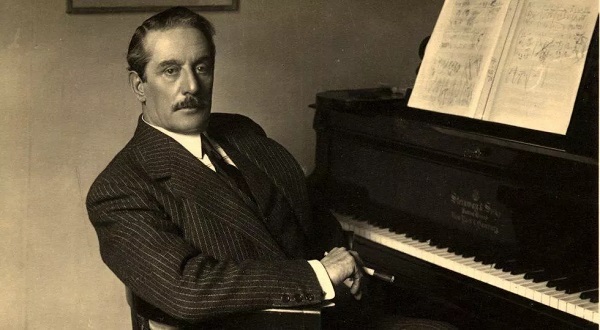Giacomo Puccini, an Italian composer from the late Romantic period, is celebrated for his masterful operas that have become staples in the repertoire of opera houses worldwide. Known for his lush melodies, emotional depth, and keen sense of drama, Puccini’s works continue to captivate audiences. Here are ten of his most iconic compositions:
1. La Bohème (1896)
“La Bohème” is one of Puccini’s most beloved operas, depicting the lives of struggling artists in Paris. The opera is famous for its poignant love story between the poet Rodolfo and the seamstress Mimì, and it features some of Puccini’s most memorable arias, including “Che gelida manina” and “Quando me’n vo’.” The delicate interweaving of joy and sorrow in the music beautifully captures the bohemian lifestyle.
2. Tosca (1900)
“Tosca” is a powerful drama set against the backdrop of political unrest in Rome. The opera tells the story of the passionate and tragic singer Floria Tosca, her lover Cavaradossi, and the villainous Scarpia. Puccini’s score is dramatic and intense, featuring famous arias like “Vissi d’arte” and “E lucevan le stelle,” as well as the iconic “Te Deum” and the spine-chilling finale.
3. Madama Butterfly (1904)
“Madama Butterfly” is a poignant tale of love and betrayal set in Japan. The opera follows the tragic story of the young geisha Cio-Cio-San, known as Butterfly, and her ill-fated marriage to the American naval officer Pinkerton. Puccini’s score is rich in exotic color and emotional intensity, with highlights including the famous aria “Un bel dì vedremo” and the haunting “Humming Chorus.”
4. Turandot (1926)
Puccini’s final opera, “Turandot,” is set in ancient China and tells the story of the icy princess Turandot and her suitors. The opera is known for its grandeur and the famous tenor aria “Nessun dorma,” which has become one of the most recognized arias in the opera repertoire. Though Puccini died before completing the opera, the work was finished by Franco Alfano, based on Puccini’s sketches.
5. Manon Lescaut (1893)
“Manon Lescaut” was Puccini’s first major success and helped establish him as a leading opera composer. Based on the novel by Abbé Prévost, the opera tells the story of Manon, a woman torn between love and luxury. The music is lush and dramatic, with standout moments such as the passionate aria “Donna non vidi mai” and the emotional final act.
6. La Fanciulla del West (1910)
“La Fanciulla del West” is often considered Puccini’s most ambitious work, blending elements of the Western genre with Italian opera. Set during the California Gold Rush, the opera tells the story of the barmaid Minnie, who falls in love with the bandit Ramerrez. The score is rich in orchestration and features the aria “Ch’ella mi creda,” which is especially popular among tenors.
7. Il Trittico (1918)
“Il Trittico” is a collection of three one-act operas: “Il Tabarro,” “Suor Angelica,” and “Gianni Schicchi.” Each opera presents a distinct mood and story, ranging from the dark and tragic (“Il Tabarro”) to the light-hearted and comedic (“Gianni Schicchi”). “Gianni Schicchi” includes the famous soprano aria “O mio babbino caro,” one of Puccini’s most popular melodies.
8. Edgar (1889)
“Edgar” is one of Puccini’s lesser-known operas but remains an important work in his early career. The opera is a tale of passion, betrayal, and redemption, with a score that showcases Puccini’s developing style. While it is not performed as frequently as his other works, “Edgar” contains moments of great lyrical beauty and emotional depth.
9. Le Villi (1884)
“Le Villi” was Puccini’s first opera, based on the legend of the Willis, supernatural beings who avenge wronged women. Although initially conceived as a one-act opera, it was later expanded to two acts. The work is noted for its lush orchestration and the beautiful “Lamento di Guglielmo,” a lament that reveals Puccini’s early mastery of melodic expression.
10. La Rondine (1917)
“La Rondine” is often described as a cross between opera and operetta. The story centers on the love affair between the courtesan Magda and the young Ruggero. Though not as frequently performed as Puccini’s other operas, “La Rondine” features exquisite arias and ensembles, including the famous tenor aria “Chi il bel sogno di Doretta.”
Puccini’s music is celebrated for its lush melodies, emotional depth, and dramatic intensity. His operas remain favorites in the repertoire, captivating audiences with their timeless stories and unforgettable music. Whether you’re a seasoned opera lover or new to Puccini’s work, these compositions offer a perfect introduction to the world of one of opera’s greatest composers.


Comments are closed